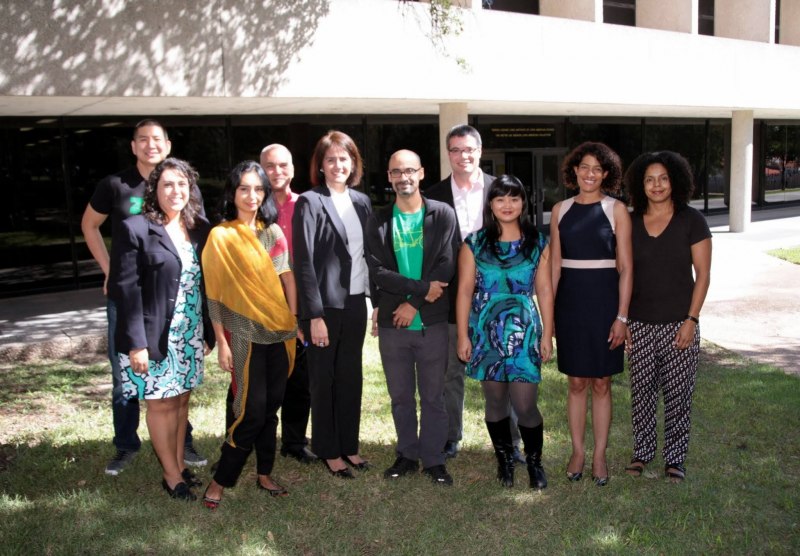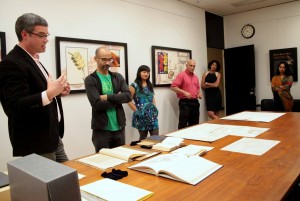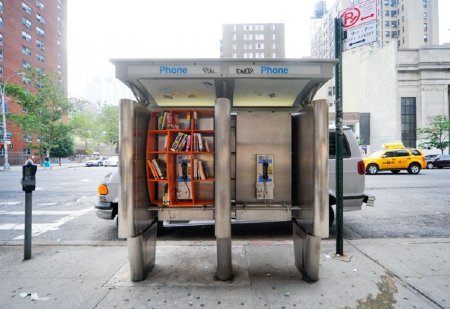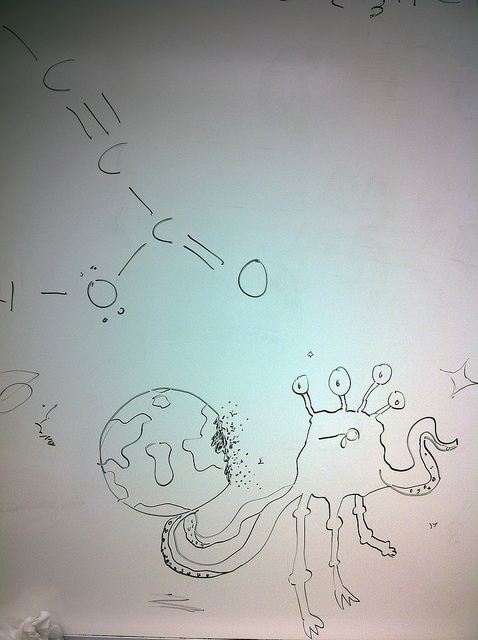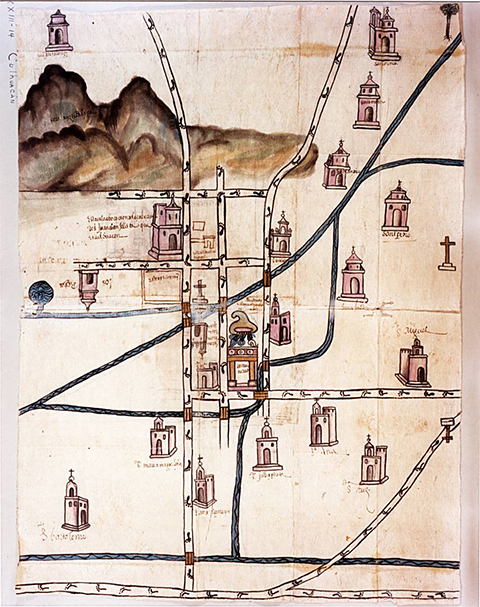
The Benson Latin American Collection is sharing its unique holdings with our crosstown public partner through an exhibit featured at the Guadalupe branch of the Austin Public Library.
Mapping Mexican History: Territories in Dispute, Identities in Question features historic maps from the Benson’s rare books and manuscripts collections that represent a visual history of Mexico’s territory, culture and identity spanning the 16th through mid-19th centuries.
Included in the exhibit are examples of the exceptional Relaciones Geográficas, elaborate surveys from Latin America requisitioned by King Philip II of Spain in the 16th Century that provide detailed demographic, geographic and sociopolitical information on Spanish colonial life in regions and towns controlled by the crown, many featuring hand-drawn maps that range from simplistic to elaborate.
Mapping Mexican History is on view on the 2nd floor of the Faulk Central Library (800 Guadalupe) through October 15. Check the website for hours, or contact the Austin Public Library at 512-974-7400 for more information.

